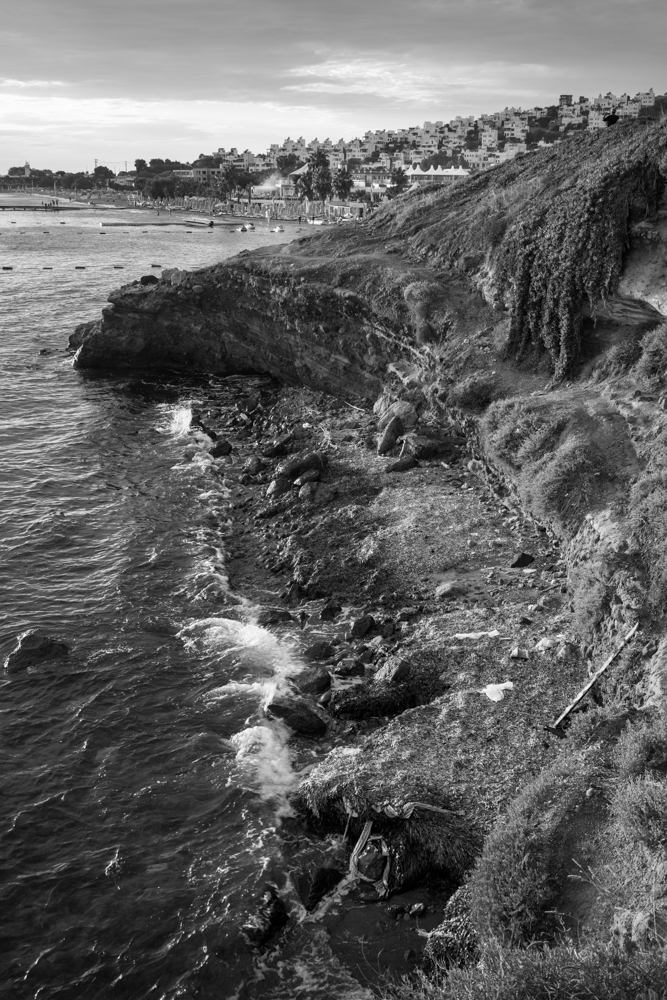The Turkish Shores:
A perilous crossing
Loubna Mrie
“ He looked out at the sea as if the key to his memory lay behind the waves. ”
— Leonardo Padura
World public opinion was shocked last September when the body of three-year-old Aylan Kurdi washed onto a beach on the Bodrum peninsula on Turkey's Aegean coast. It was the most publicized of a mostly ignored succession of tragedies that have characterized this not-so-clandestine maritime crossing to the Greek islands. The International Organization for Migration calculates that over one million people landed in Greek territory in 2015 alone, and registered 806 deaths in the treacherous waters of the Aegean Sea. This mass movement of people has generated a sizable illegal economy stretching from Syria to Sweden. In Turkey, it is particularly visible in the ancient port of Izmir, the country's third largest city, and in Bodrum, a picturesque vacation destination. Thousands of refugees—mostly Syrians, Iraqis and Afghans, but also Pakistanis, Iranians and Africans—crowd the streets of the central Izmir neighborhood of Basmane, making arrangements with one of the hundreds of human smugglers that are thought to operate in the city. All kinds of stores in the area have resorted to selling bright orange life jackets (manufactured in Izmir and not quite up to standard) as well as other accessories for the refugees such as pneumatic tubes, waterproof pouches, and external smartphone chargers. Dozens of inflatable rafts cross daily from multiple points along the so-called Turkish Riviera, and traverse the scarce ten miles to the Greek islands: Lesbos, Chios, Kos and a handful of others. Stretches of beach throughout the coast are littered with vestiges of this mass flight, the remains of myriad anonymous stories. The spectres of the drowned haunt the scenery.
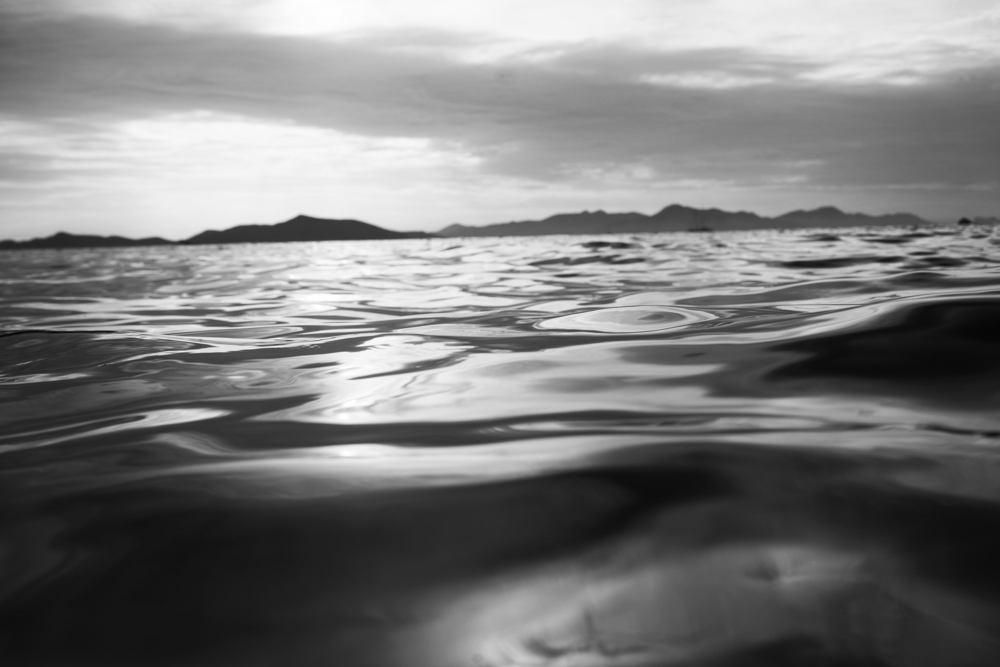
The island of Kos seen from a beach on the Bodrum peninsula in Turkey.
Akyarlar, Turkey. September 26, 2015. © Loubna Mrie
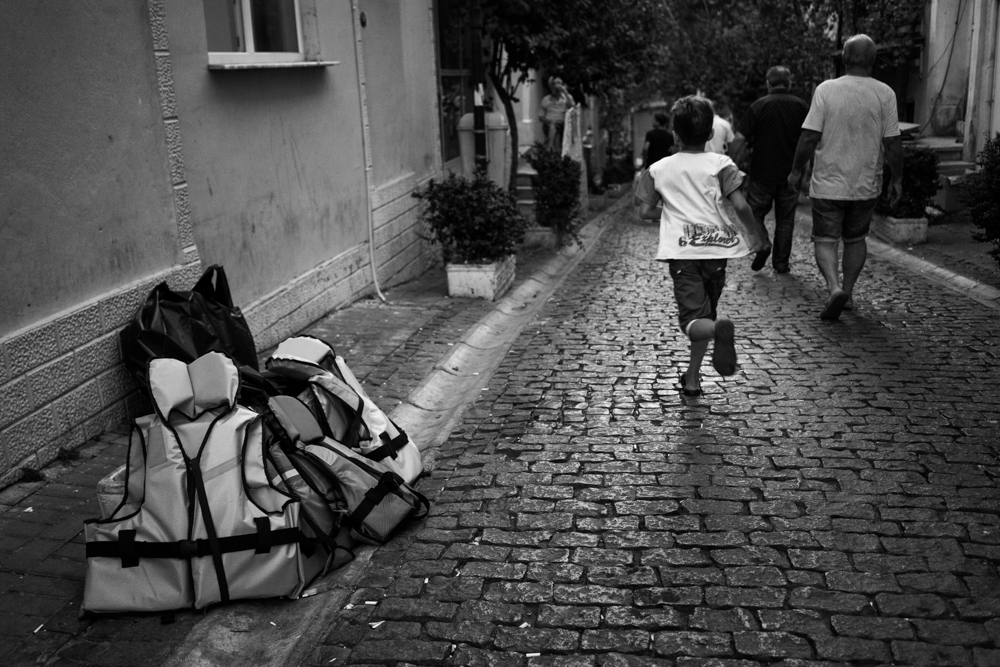
A boy runs by a pile of life vests for sale on the streets of central Izmir.
Izmir, Turkey. September 20, 2015. © Loubna Mrie
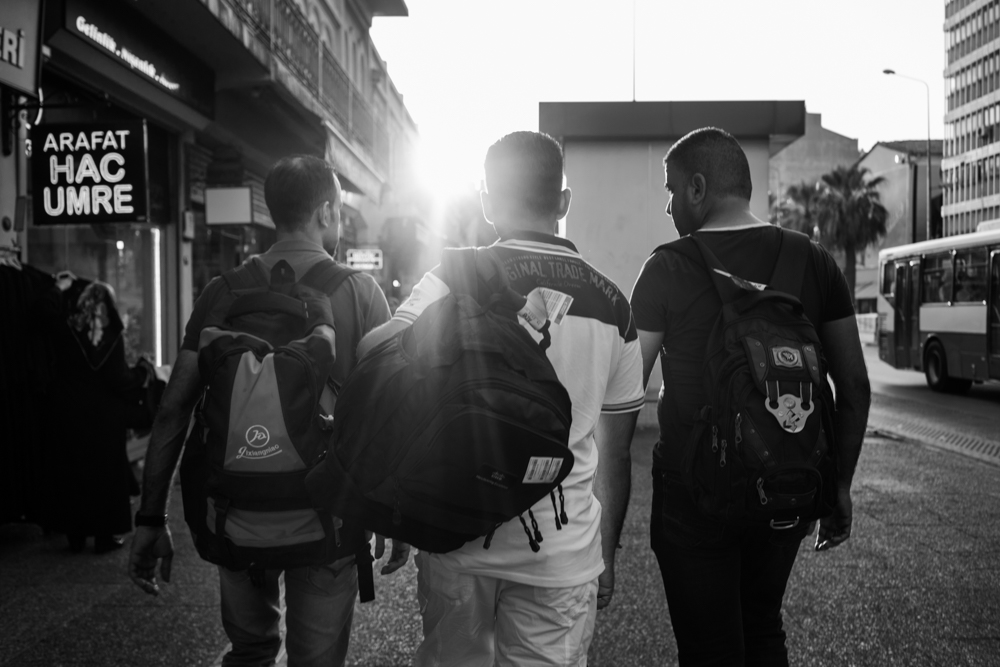
Three Iraqi refugees walk down Fehvsi Pasha Boulevard in Izmir, looking for a smuggler to make arrangements to travel to the Greek Islands in the Aegean Sea.
Izmir, Turkey. September 19, 2015. © Loubna Mrie
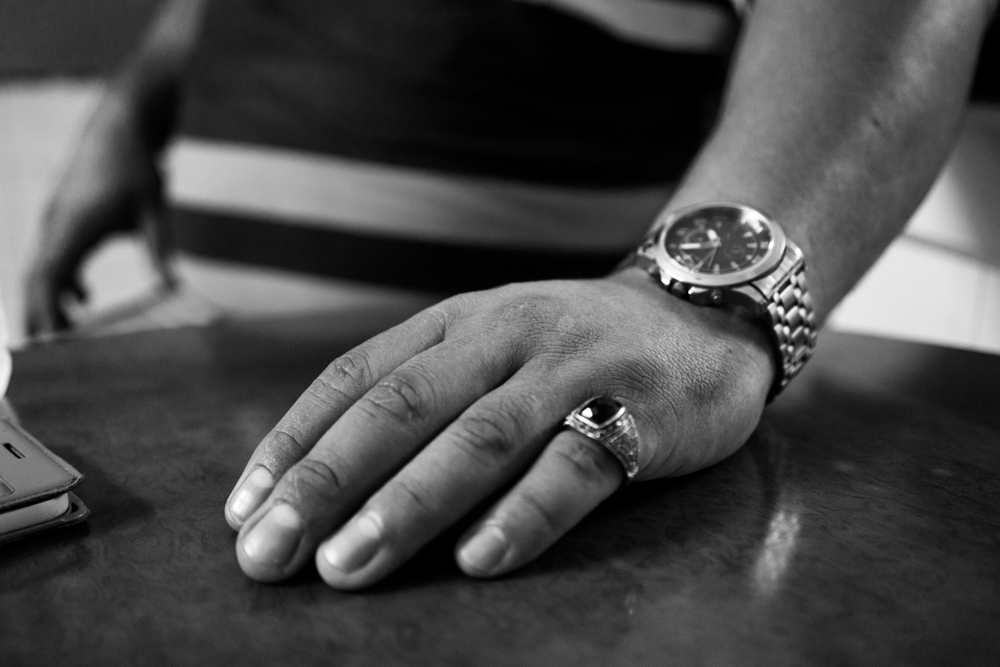
al-Khal (The Uncle), a 38-year-old Syrian who heads a human smuggling operation in Izmir, wears a solid ring crowned with an obsidian on his pinky finger—a gift from an Iranian family he smuggled to Greece. He claims to have made over two million dollars in the last two years.
Izmir, Turkey. September 19, 2015 © Loubna Mrie
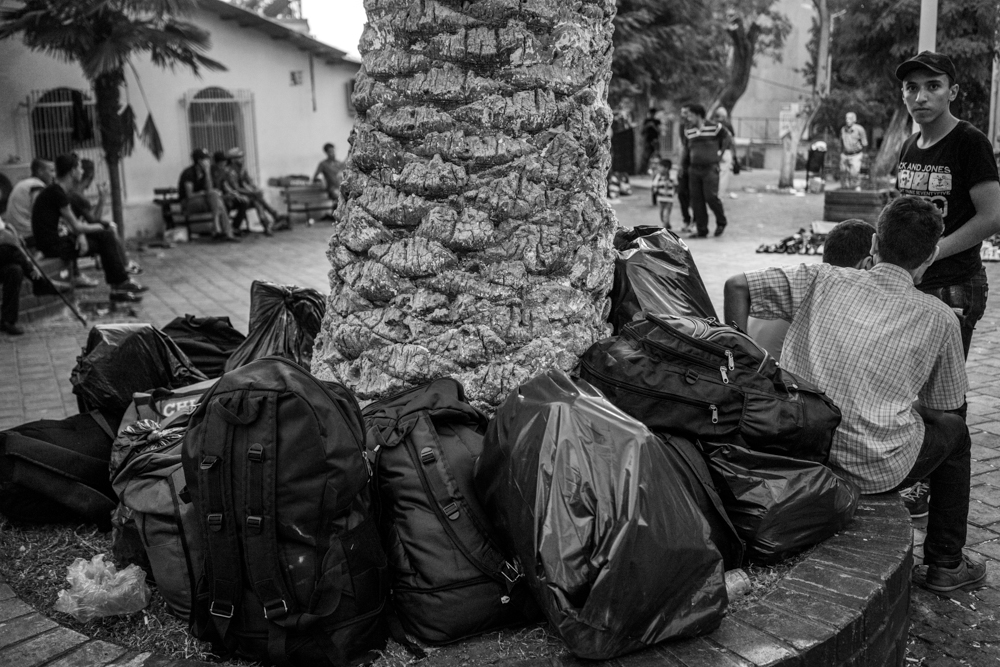
A square in the central Izmir neighborhood of Basmane, where refugees wait with their baggage for a call from the smugglers.
Izmir, Turkey. September 20, 2015. © Loubna Mrie
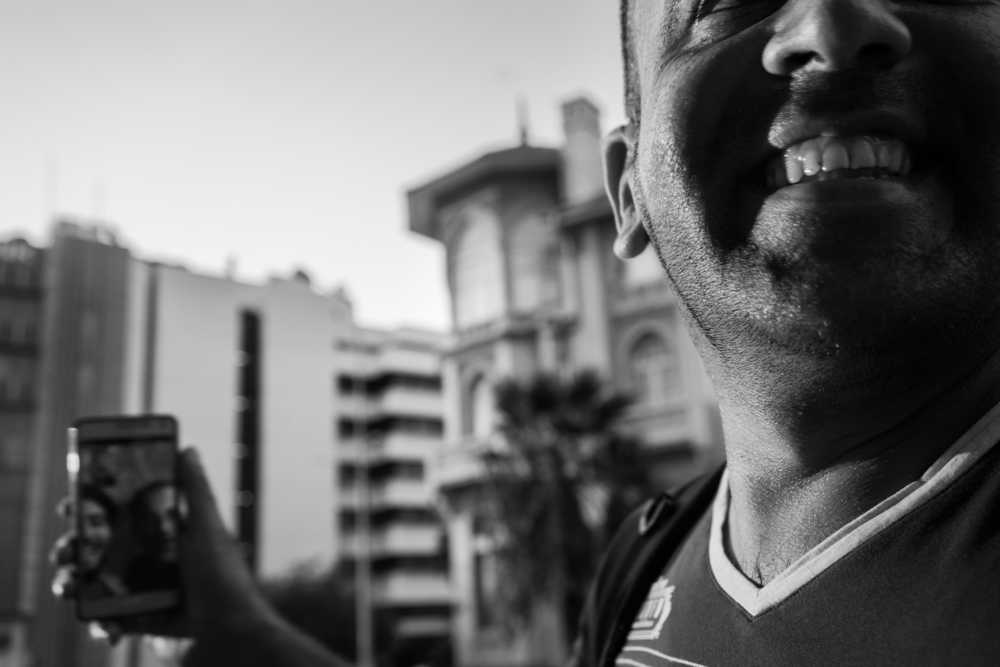
An Iraqi refugee from Baghdad Skypes with his family from Gazi Boulevard before his impending trip to the Greek islands.
Izmir, Turkey. September 19, 2015. © Loubna Mrie
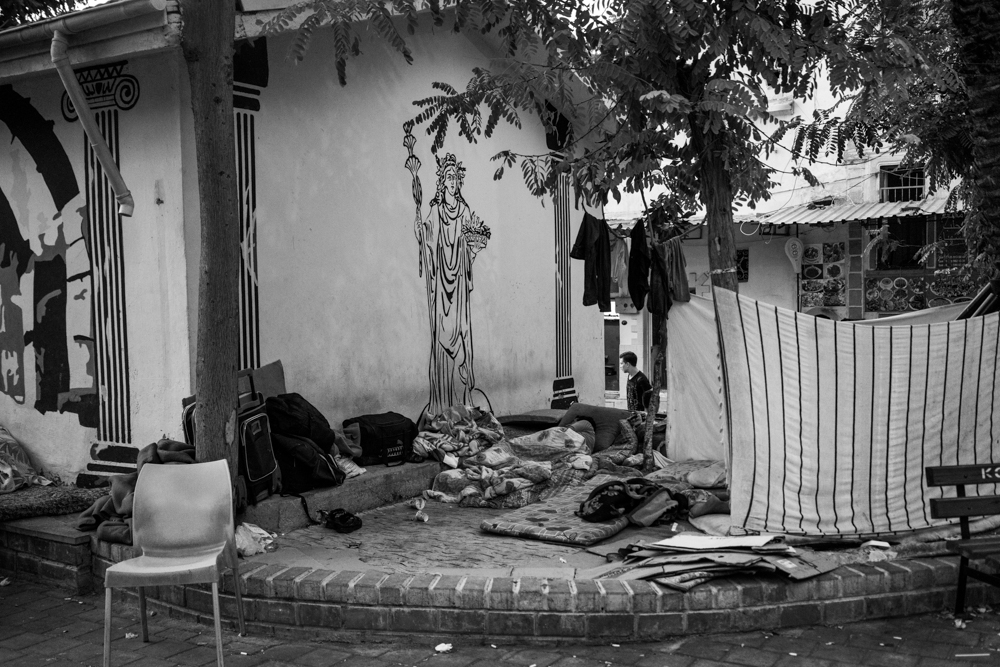
Refugees pitch temporary camps on a square in central Izmir.
Izmir, Turkey. September 20, 2014. © Loubna Mrie
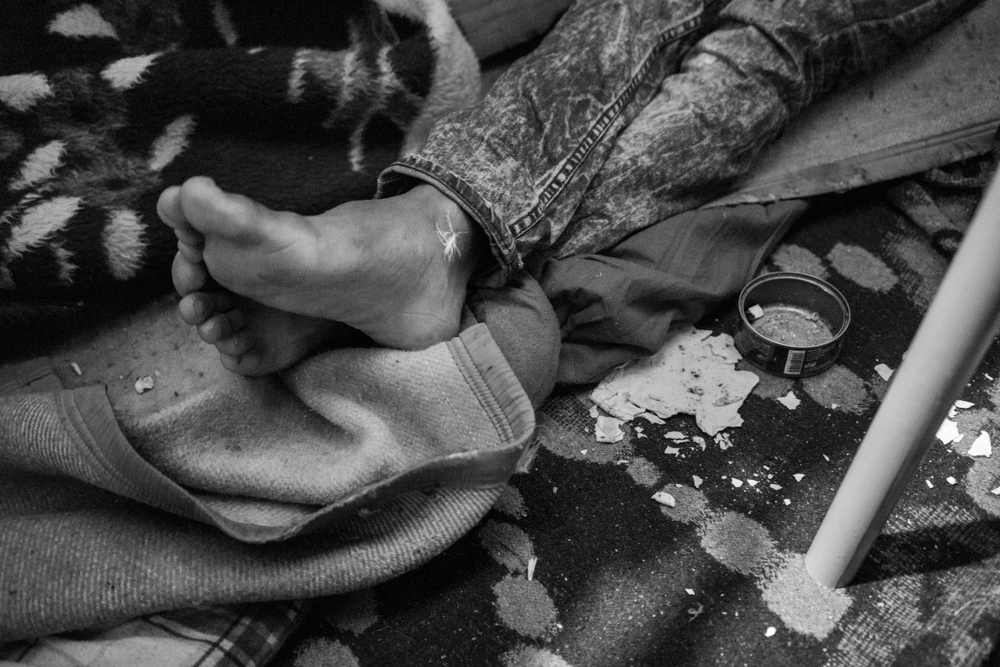
An 18-year-old Moroccan man who prefers to remain anonymous rests on a tent pitched on a square in central Izmir. He does not have enough money to pay a smuggler.
Izmir, Turkey. September 20, 2015. © Loubna Mrie
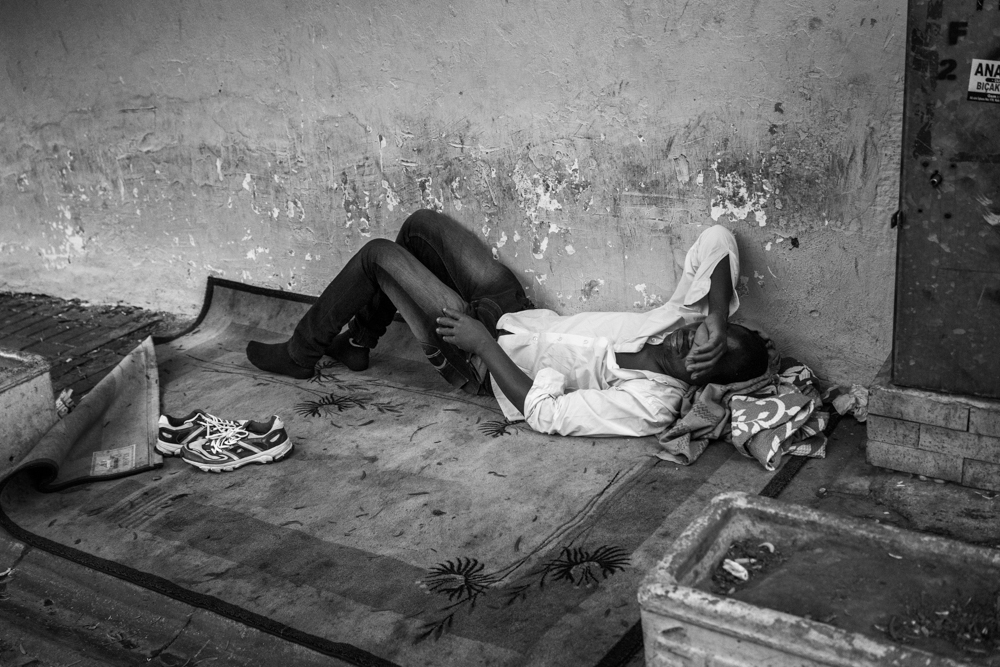
An African man sleeps on the streets of Basmane neighborhood. Izmir has become a hub for human smuggling, attracting would-be migrants to Europe from Sub-Saharan Africa, the Maghreb, the Levant, and all over Central Asia as far as the Indian subcontinent.
Izmir, Turkey. September, 20, 2015. © Loubna Mrie
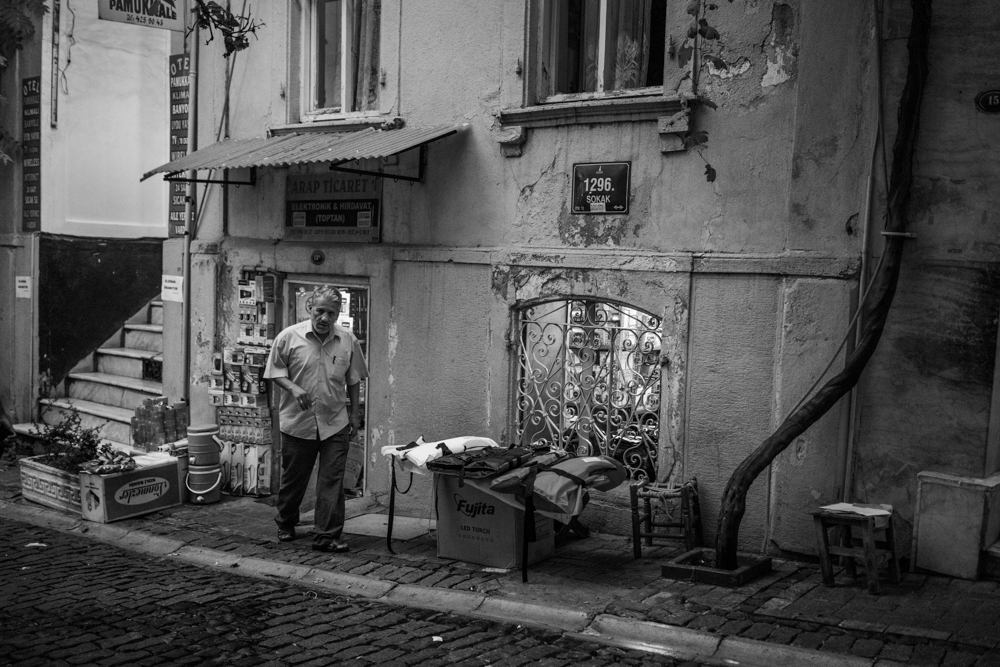
A shopkeeper sells life-vests, manufactured in Izmir, which are not up to safety standards. The refugee crisis has generated a multi-million dollar underground economy in the city.
Izmir, Turkey. September, 20, 2015. © Loubna Mrie
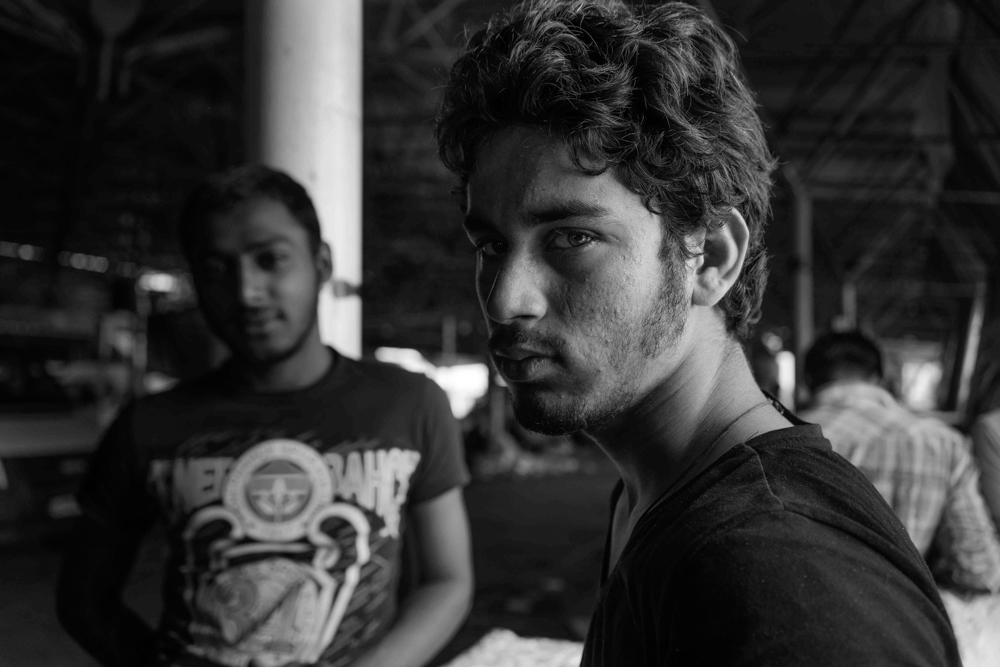
Two afghan refugees camp out at the bus station in Bodrum. Hundreds of mostly young, single men —Pakistanis, Afghanis, Iranians— sleep in the station while they muster up the funds to pay for a maritime crossing. Many tried to side-step the smugglers by purchasing precarious rafts and basic engines to cross the trecherous waters to the Greek island of Kos.
Bodrum, Turkey, 2015. © Loubna Mrie
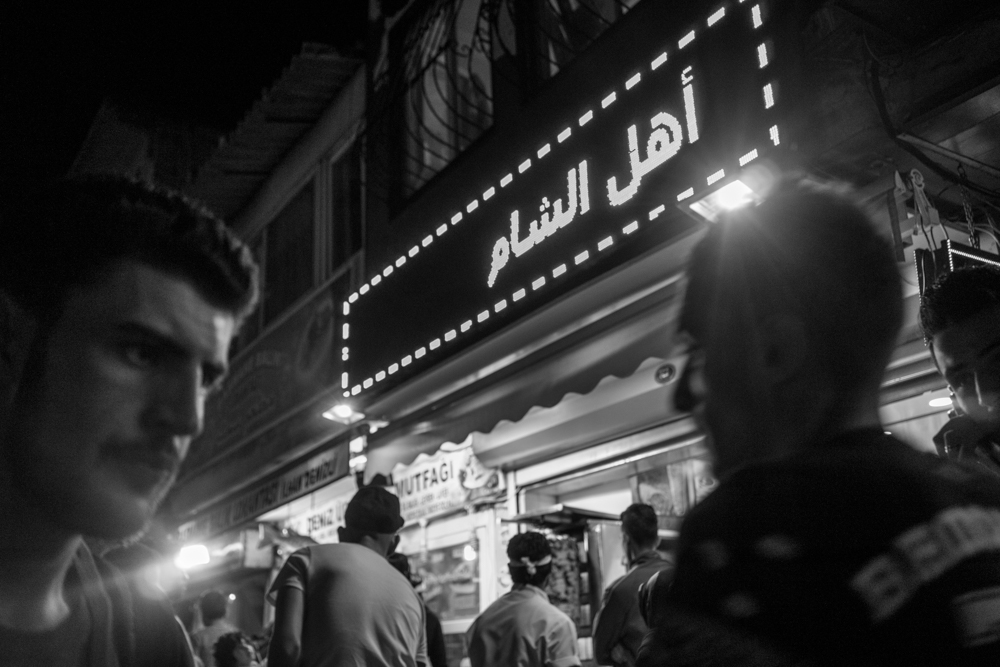
A Syrian shawarma restaurant in Basmane in central Izmir. The sign in Arabic reads "Damascenes."
Izmir, Turkey. September 20, 2015. © Loubna Mrie
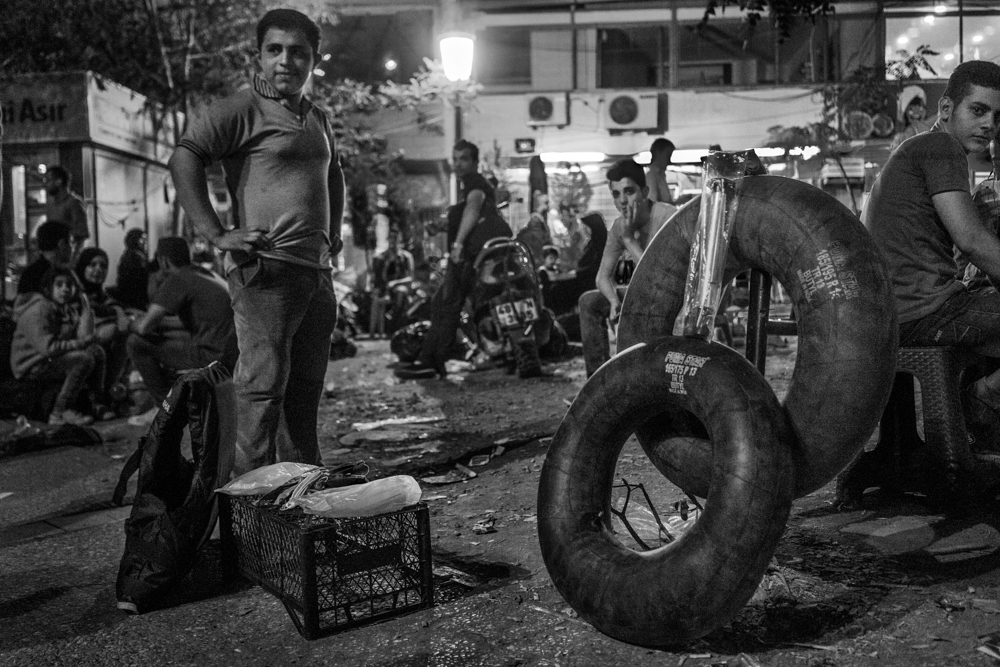
Refugees wait for a call from the smugglers in Basmane Square, where street peddlers sell floating devices.
Izmir, Turkey. September, 19, 2015. © Loubna Mrie
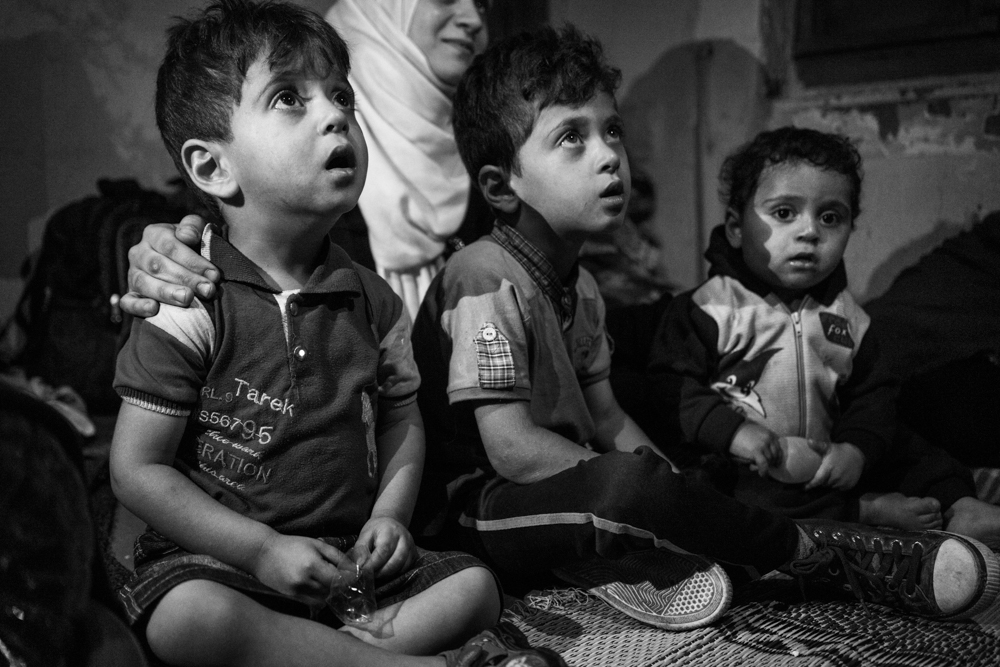
Ibrahim, 5, Habibullah, 3, and Seraj, 1, three Syrian brothers sit with their mother in the courtyard of the Basmane mosque in Izmir shich serves as temporary shelter for refugees before heading out to the Aegean sea to cross to the Greek islands.
Izmir, Turkey. September 19, 2015. © Loubna Mrie
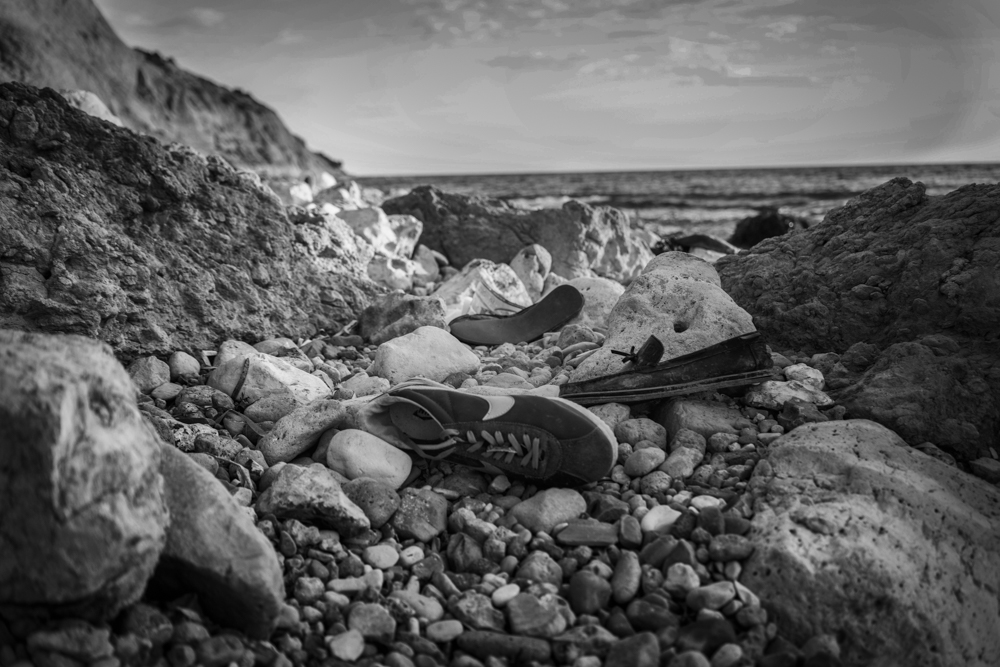
Traces left by refugees on a beach in Çesme, used as a point of departure to the Greek island of Chios, less than ten miles away.
Çesme, Turkey. September 24, 2015. © Loubna Mrie
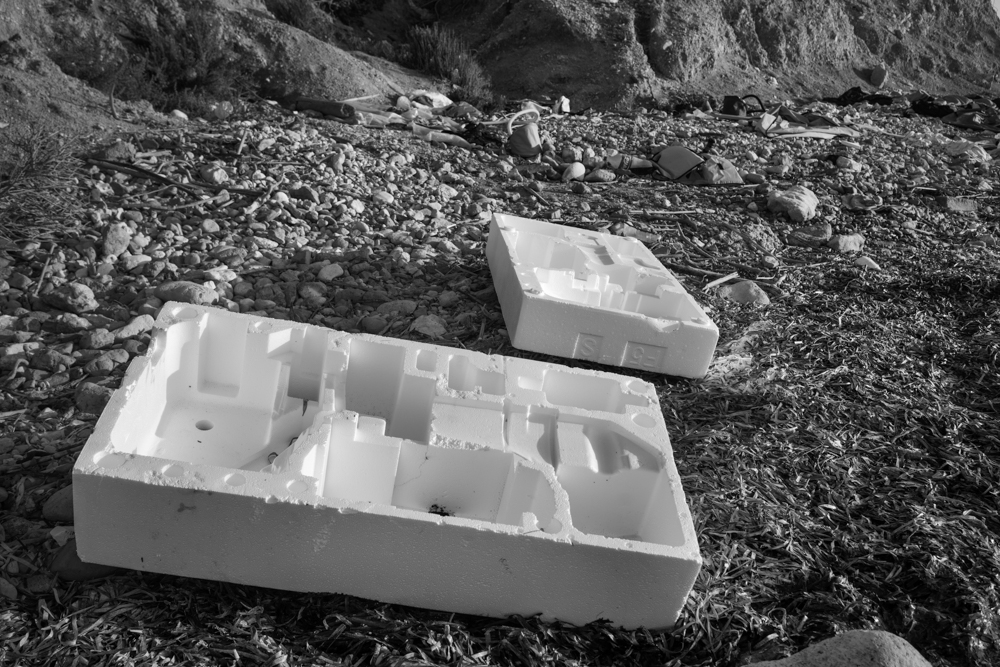
Styrofoam packing for the basic outboard motors used to power the inflatable rafts that transport refugees to the Greek island of Chios in a beach close to Çesme.
Çesme, Turkey. September 24, 2015. © Loubna Mrie
